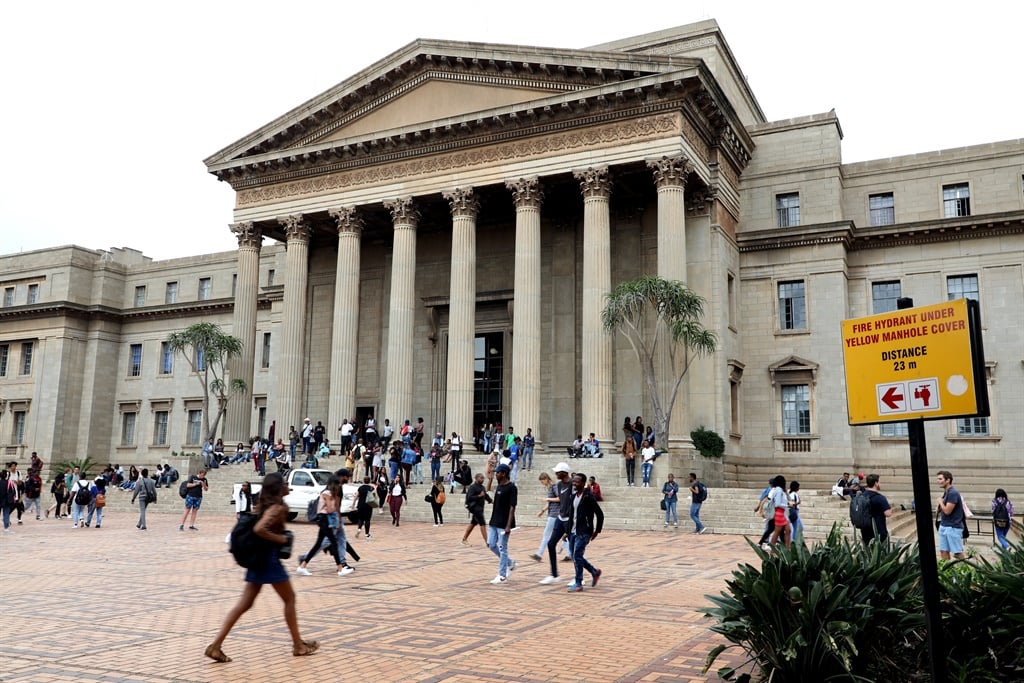
It’s the beginning of South Africa’s academic year and once again, campuses have been brought to a standstill by students protesting against a host of issues that have plagued the country’s universities. These include registration fees, student accommodation, food and other issues, compounded by the inefficiency of the country’s student financial aid scheme.
The protests and the employment of private security on campuses has appallingly led to the death of a student, and have once again brought the problems besetting higher education to the fore. But the current situation was entirely predictable.
In the wake of nationwide campus protests from 2015 to 2017, former president Jacob Zuma’s administration opportunistically extended funding for tertiary education to a broader cohort of students. This didn’t resolve the government’s flawed approach to the students’ demand for free higher education.
It was inevitable that the promise of “free education” would come back to haunt the government. That’s because leaders fail to understand what’s really at stake in the demands for genuinely free quality education for all. University administrations expected the government’s student funding agency – the National Student Financial Aid Scheme – to solve the problem of affordability.
But the scheme has experienced a succession of bureaucratic problems. This has again led to the rejection of tens of thousands of financial aid student applicants. This, in turn, sparked widespread protests and campus shut-downs.
Government could have taken another route by adopting the carefully researched and argued suggestions that some academics, civil society and others made to entrench the right to education as a public good.
As one news report said, the aid scheme has simply failed to “pay the right amount of money to the right students at the right time”. A senior department official was also quoted as saying:
"Despite the daily support of departmental officials and support teams, the National Student Financial Aid Scheme was not able to put in place adequate solutions to address the problems coherently and quickly."
It needn’t be this way. We’ve always argued that free higher education for all is not only desirable, but entirely possible. In our submission to the Heher Commission – a commission instituted by government to advise it on the question of tertiary student funding – we set out a number of recommendations. But these have been ignored.
The search for a solution
In our arguments we focused on a range of issues related to the role of higher education as a public good and for supporting the objectives of social transformation.
Our view is that public universities are society’s key institutions for developing knowledge through their role in research and teaching. By fulfilling these functions, institutions contribute to social, economic, cultural and intellectual development.
But for this to happen there needs to be an enabling environment. This includes decent accommodation and food for students as well as financial, infrastructural and intellectual resources.
We argue that free higher education is not an end in itself. Rather, it’s essential for the achievement of the social, political, cultural and transformative goals of a society characterised by the legacies of racist oppression and exploitative social relations.
Policies that are designed to provide for the full cost of study are essential to an overarching social objective of developing a democratic and socially just society.
We argue that with careful and systematic planning, this social vision is entirely achievable.
Solutions
We didn’t argue for the increase of value added tax as this hits the poor the hardest. We suggested taxing the super rich, where some don’t pay the taxes due by them.
- Similar ideas of taxing the super rich are set out in detail by French economist Thomas Piketty, US senator Bernie Sanders, and UK Labour Party leader Jeremy Corbyn.
In addition we argue for:
- Stopping the outflow of capital. In the past 18 months alone R350 billion has left South Africa. In the period from 2002 to 2011, illicit outflows have been estimated at approximately R1,4 trillion ($100.7 billion) by the organisation Global Financial Integrity.
We argue that the state has the potential – if it has the will – to stop the extraordinary levels of capital outflow. This would provide it with sufficient funds to support free higher education for all and the chronically underfunded universities.
Although individuals will not be equal when education is made free, our approach is dedicated to ending the culture of corporatism and business models that still dominate the university system.
Untenable situation
The present situation – where thousands of students are turned away while others are drowning in debt – is simply untenable. It deepens the crisis faced by students. University managements should make common cause with students and pressurise the state instead of relying on charity, band-aid solutions or even worse, the violence of private security. All of these are unsustainable.
The state’s continued indecisiveness and unwillingness to engage with carefully researched and argued proposals from those within the higher education sector does not bode well for change. Using the bureaucratic devices of National Student Financial Aid Scheme to mediate this crisis will fail and only deepen social conflict.![]()
- Salim Vally, Director of the Centre for Education Rights and Transformation and Associate Professor of Education, University of Johannesburg; Enver Motala, Researcher, Social Sciences, University of Fort Hare; Mondli Hlatshwayo, Senior Researcher in Labour Studies and Education, University of Johannesburg, and Siphelo Ngcwangu, Senior lecturer, sociology, University of Johannesburg
This article is republished from The Conversation under a Creative Commons license. Read the original article.




 Publications
Publications
 Partners
Partners






















